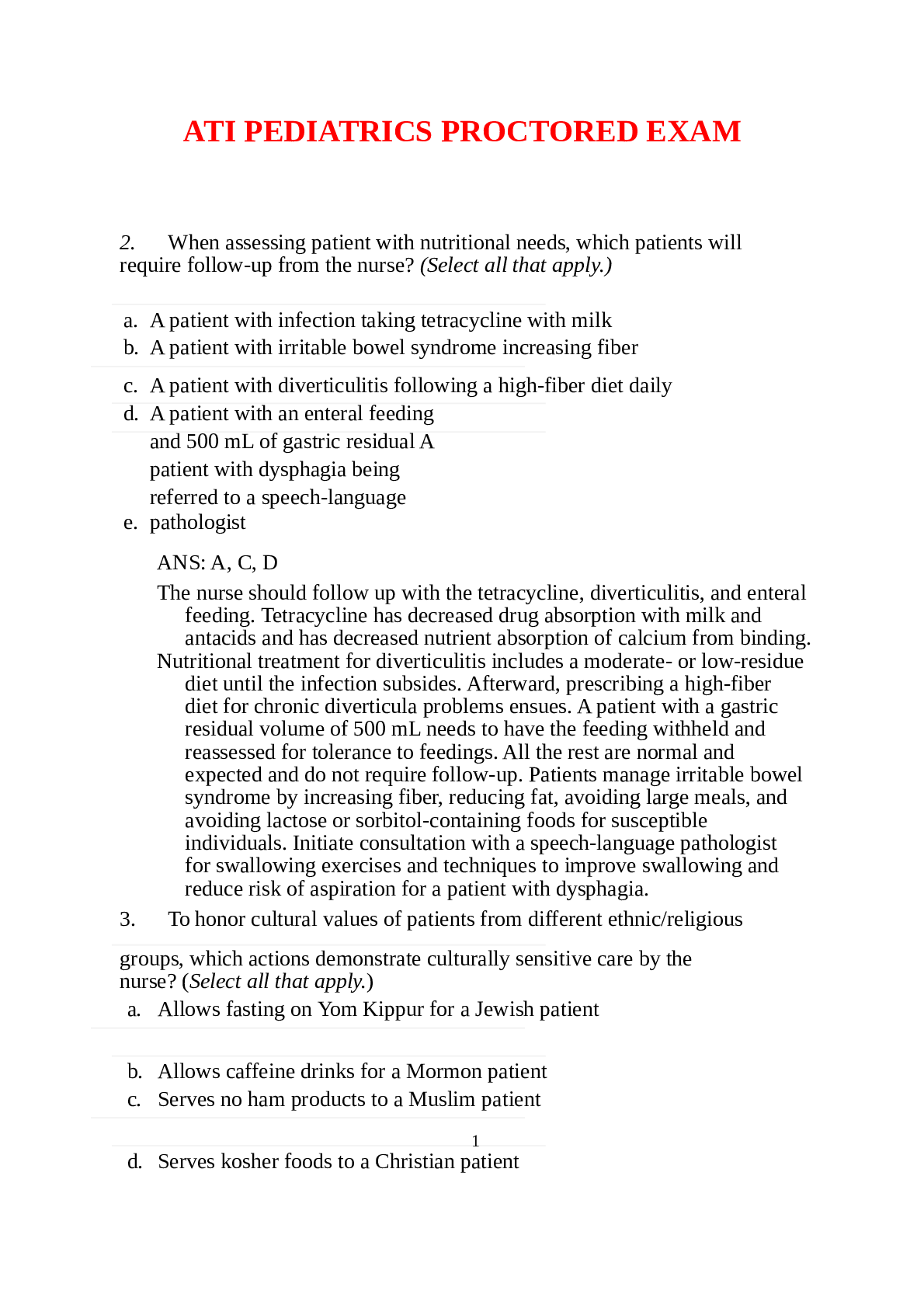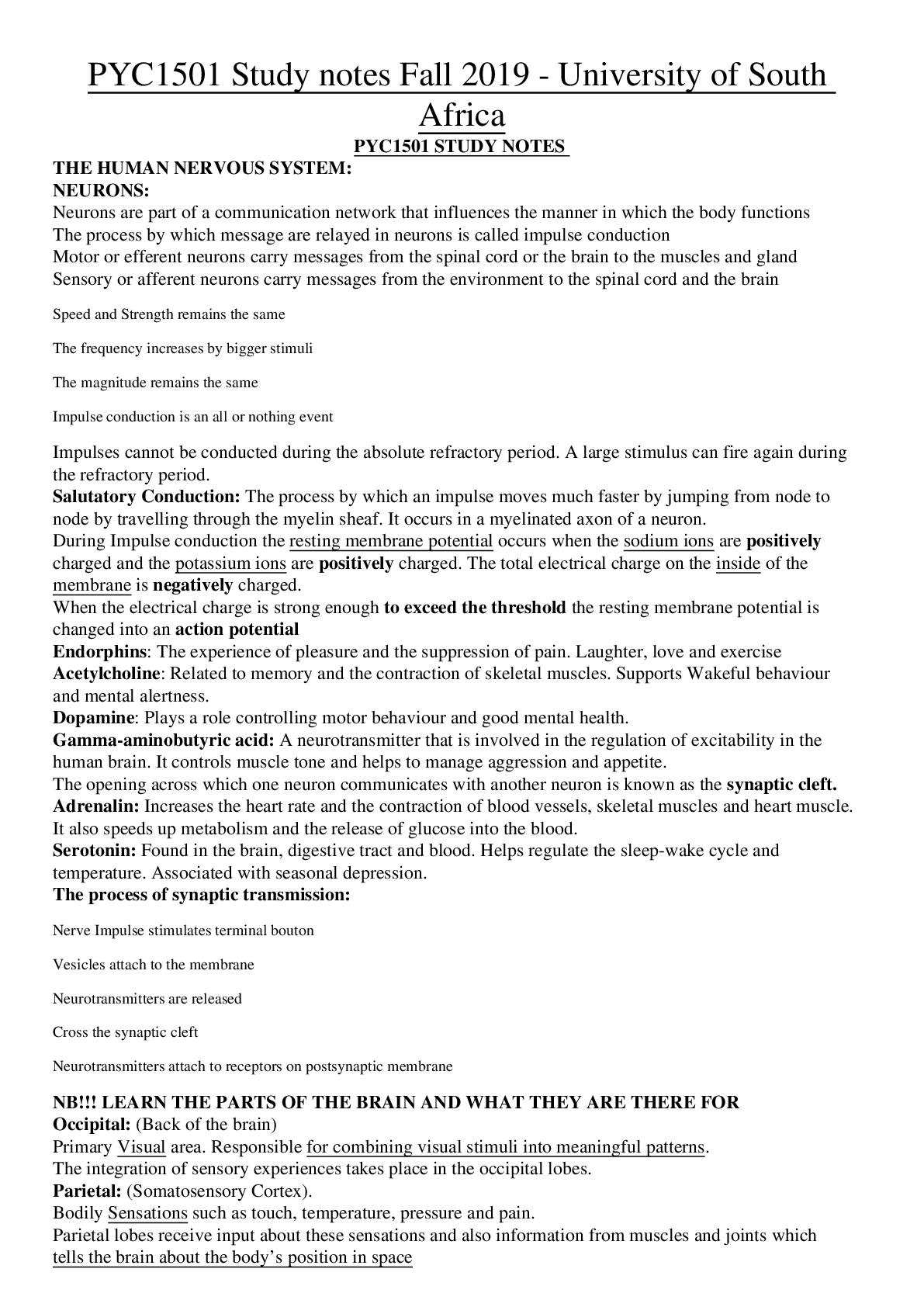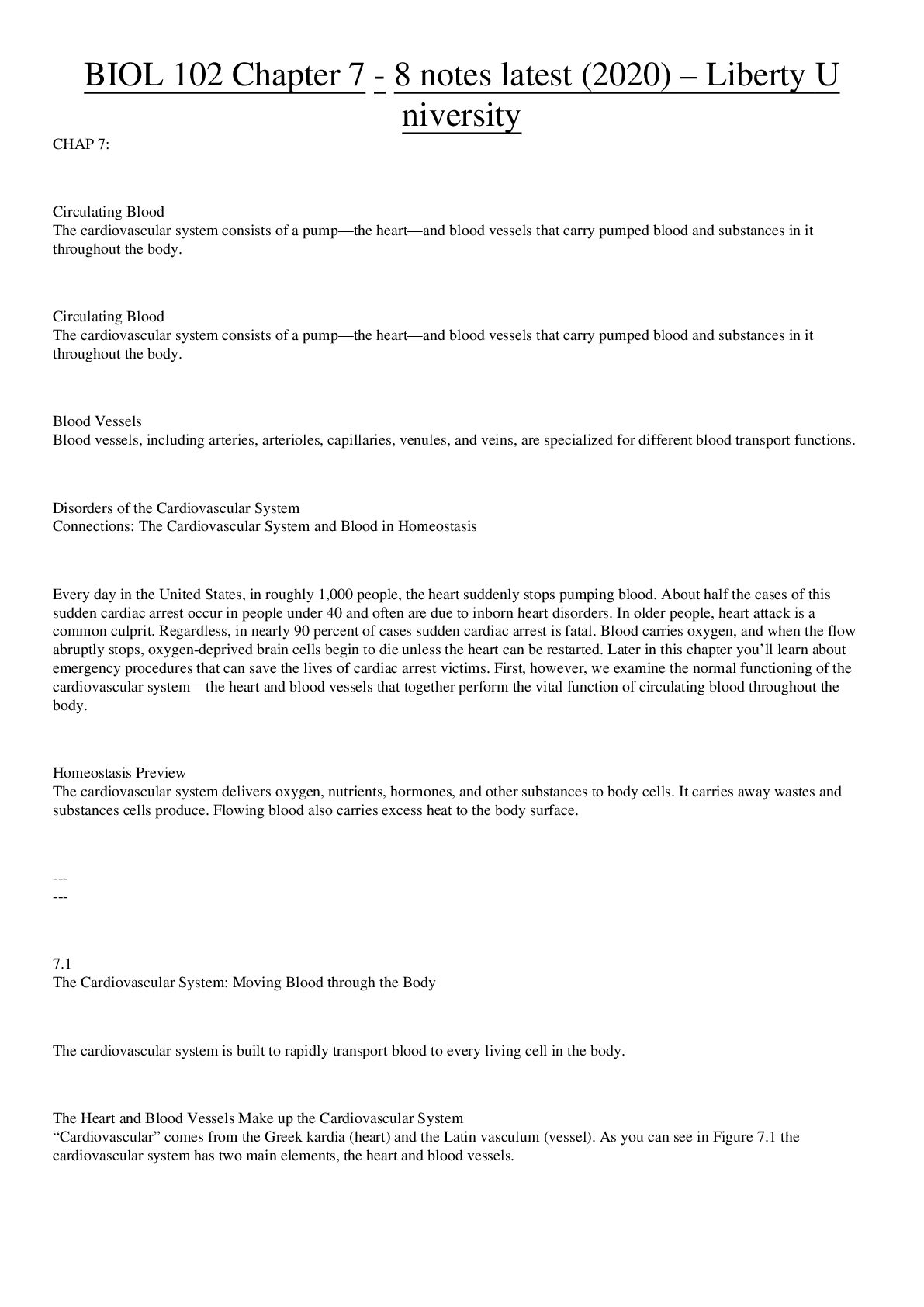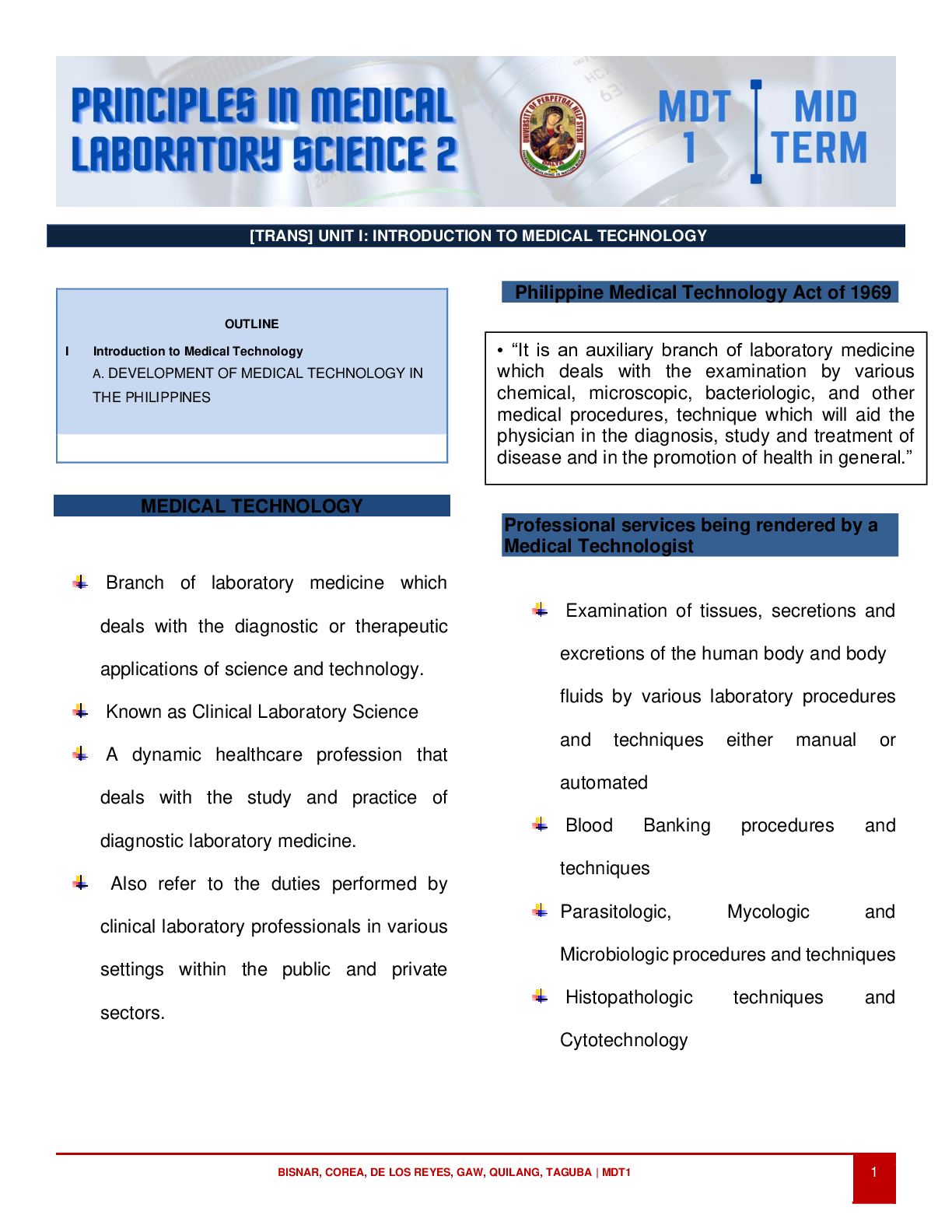Physiology > LECTURE NOTES > Cell Specialization Lecture notes (All)
Cell Specialization Lecture notes
Document Content and Description Below
All organisms are composed of cells. Unicellular organisms are composed of a single cell. Multicellular organisms are composed of many specialized cells. Specialized cells differ in structure (size, s... hape...) and function (the role they perform in the organism). The structural modifications that occur in a specialized cell equip it to do its job in the organism. An adult human is composed of approximately 100 trillion cells and has over 200 different types of specialized cells. Examples of Specialized Cells Sperm Cell http://utahhealthsciences.net/customer/image_gallery/373/13SEM.J PG Fat Cells www.broadinstitute.org White Blood Cell http://medpediamedia.com/u/653px- SEM_Lymphocyte.jpg/653px-SEM_Lymphocyte_large.jpg Macrophage s surrounding parasite www.eyeofscience.com The life cycle of a cell consists of a growth phase (interphase) followed by a division phase (either mitosis or meiosis). Some cells cycle between interphase and division continuously through the life of an organism. This allows the body to produce new cells allowing for growth and maintenance of tissues. Other cells exit the cell cycle and enter a non-dividing phase called GO. Depending on environmental signals, they may reenter the cell cycle or remain in GO permanently. A cell specializes while in interphase or GO. The process in which a cell becomes specialized is called differentiation and occurs when the cell selectively activates or inactivates specific genes. The specialized cells of an organism contain the exact same complement of genes. In humans, this means that each cell type contains approximately 30,000 genes. This is because each cell is the descendent of a single cell (the fertilized egg) that underwent mitotic cell division to form a multicellular organism during embryonic development. Cell differences are the result of differences in gene expression. A gene is expressed (activated) when it is transcribed and translated into a protein. scienceblog.com Some genes (such as those responsible for glucose metabolism or protein synthesis) are expressed in all cells. Other genes are expressed in a single or select few specialized cells. The expression of a gene within a particular specialized cell changes over an individual’s life. For example, all human cells contain a gene that codes for caesin, the major protein found in milk. However, the gene is only expressed milk producing cells of lactating [Show More]
Last updated: 1 year ago
Preview 1 out of 8 pages

Reviews( 0 )
Document information
Connected school, study & course
About the document
Uploaded On
Oct 06, 2022
Number of pages
8
Written in
Additional information
This document has been written for:
Uploaded
Oct 06, 2022
Downloads
0
Views
62


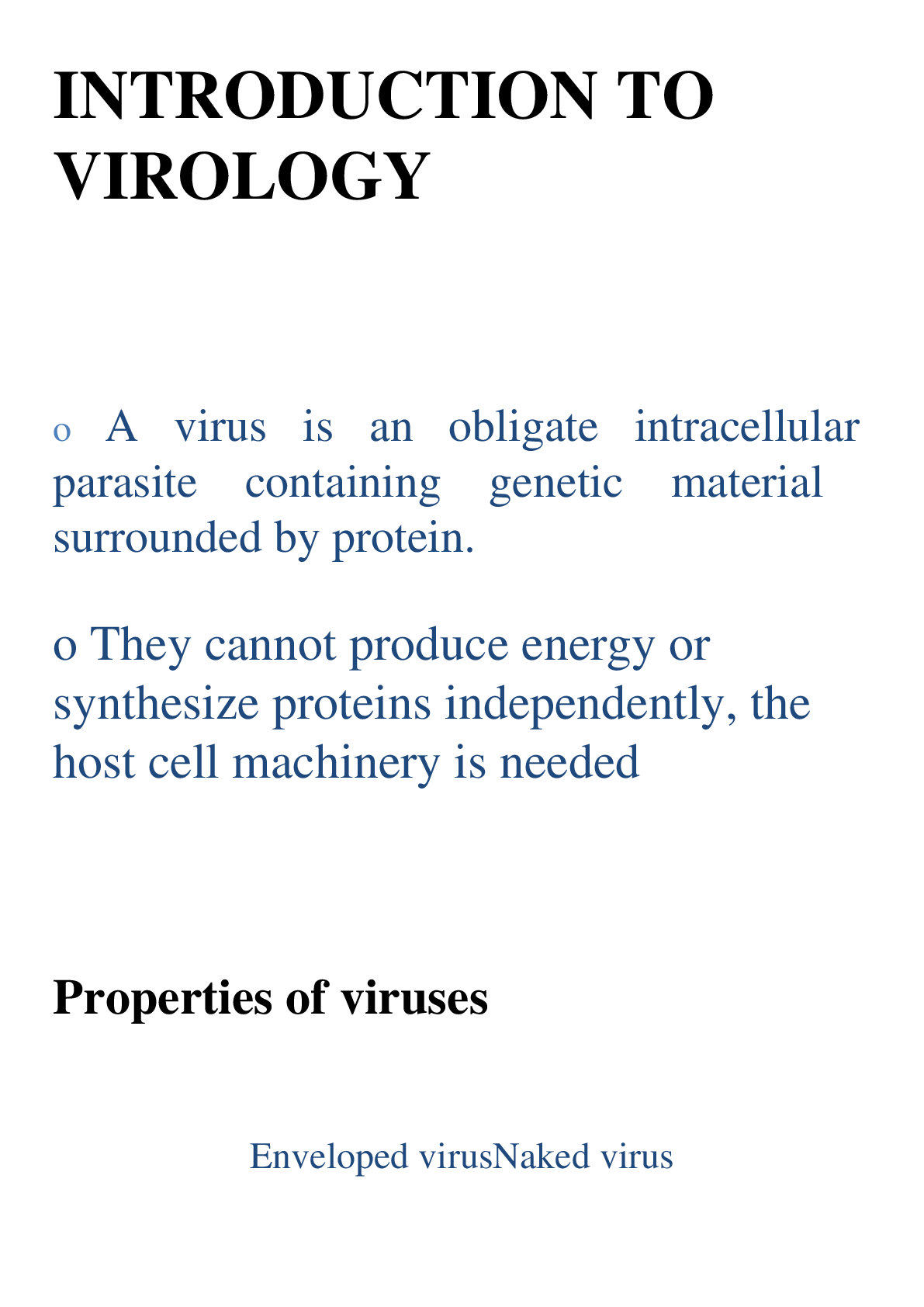


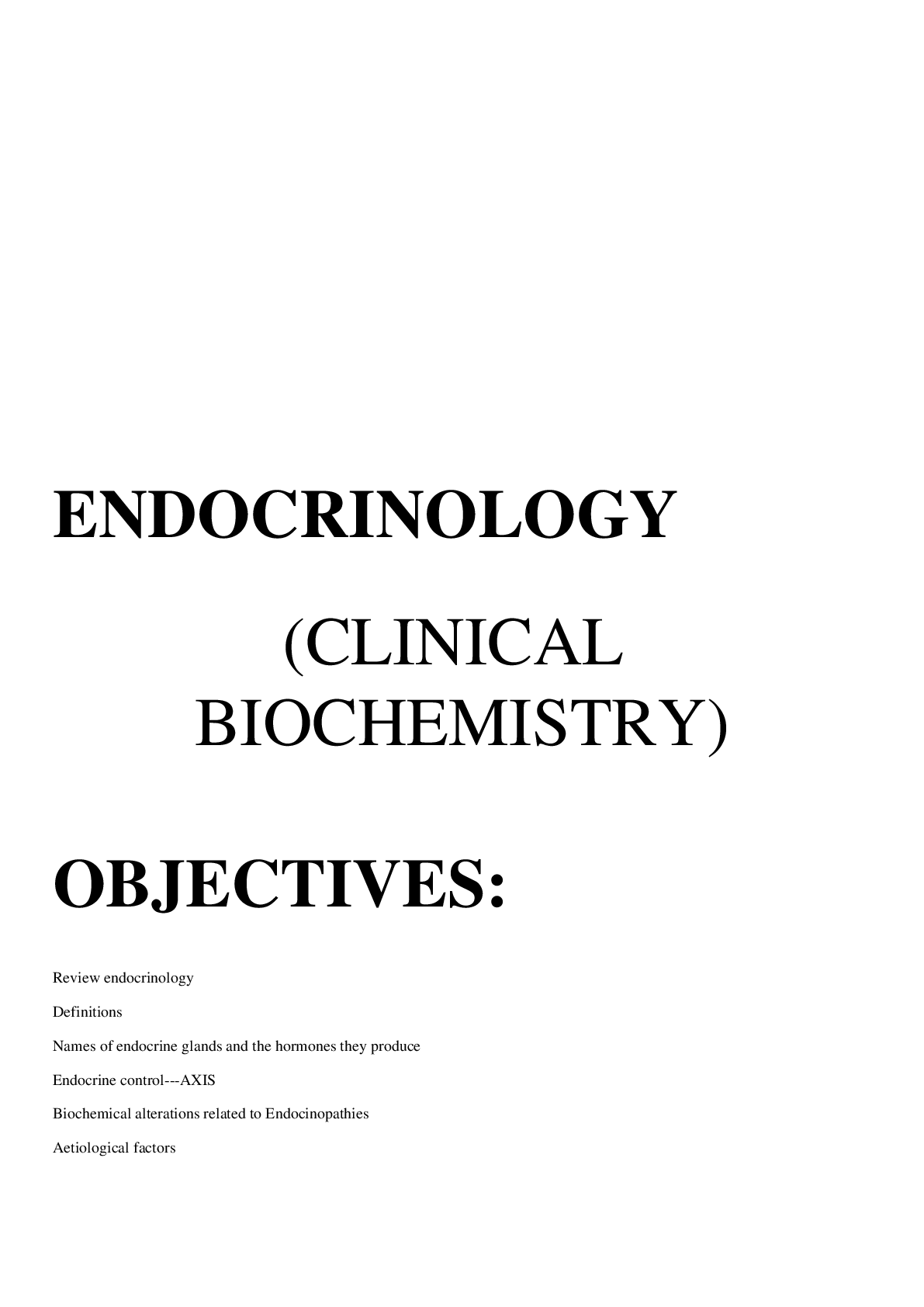
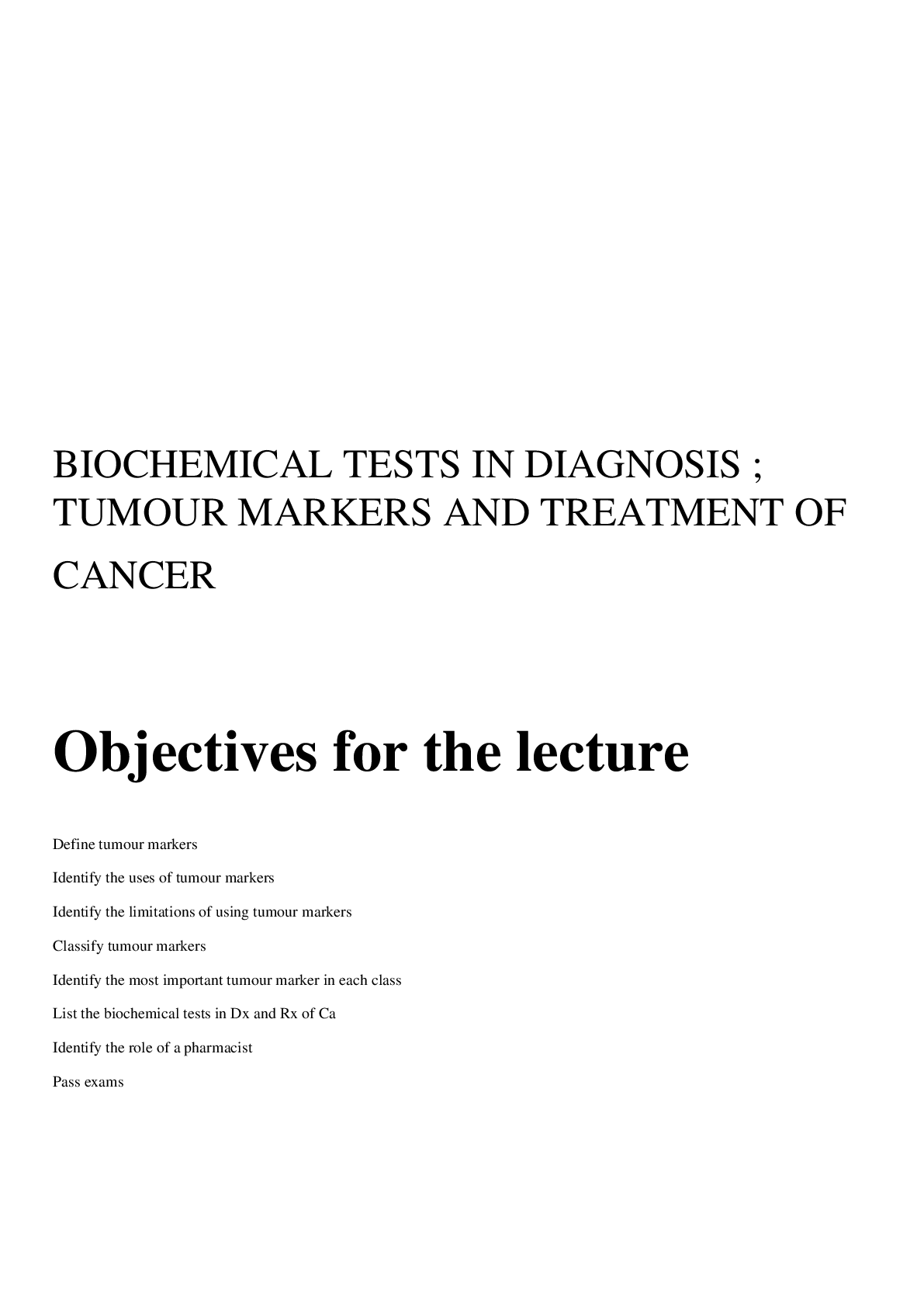



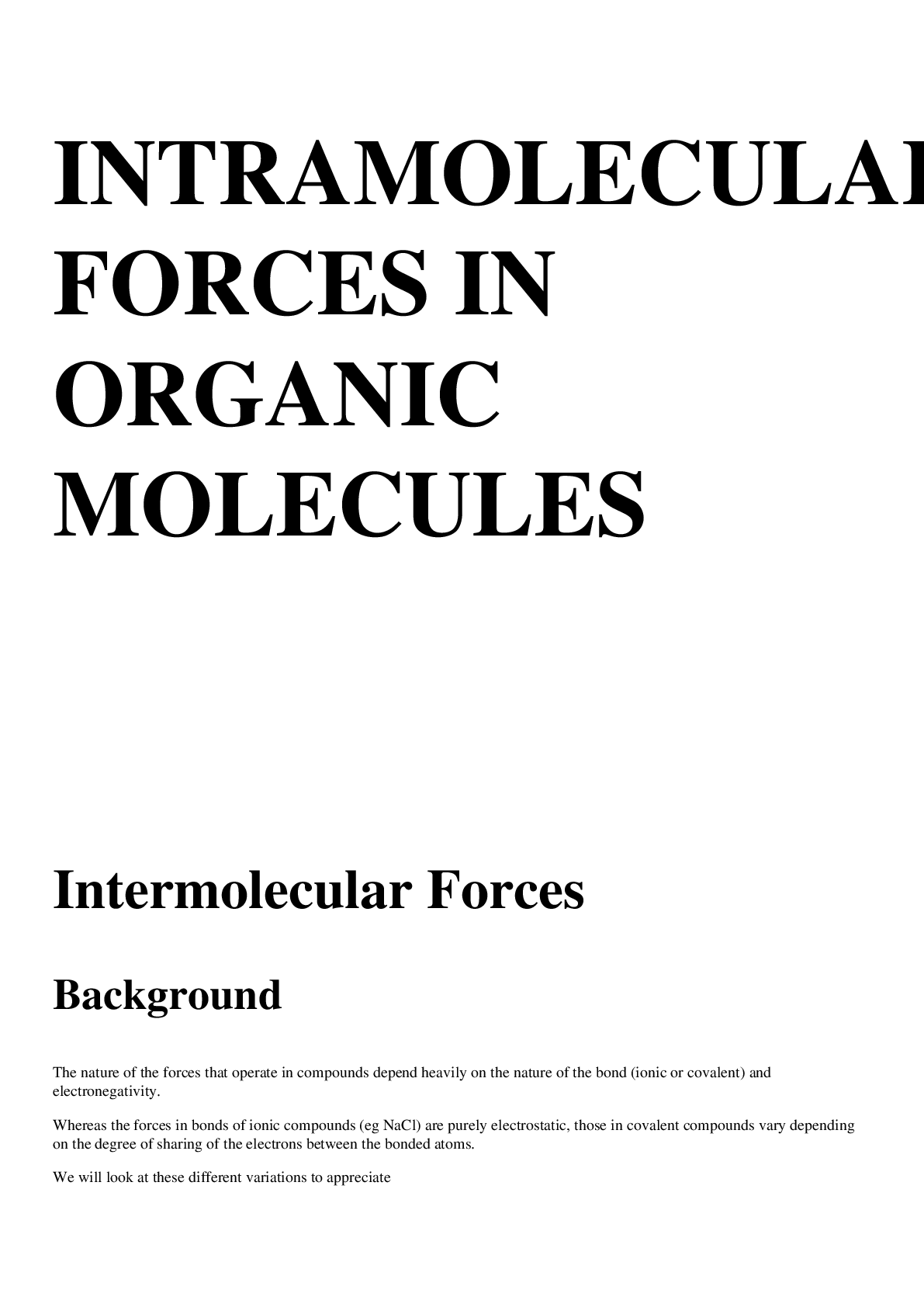
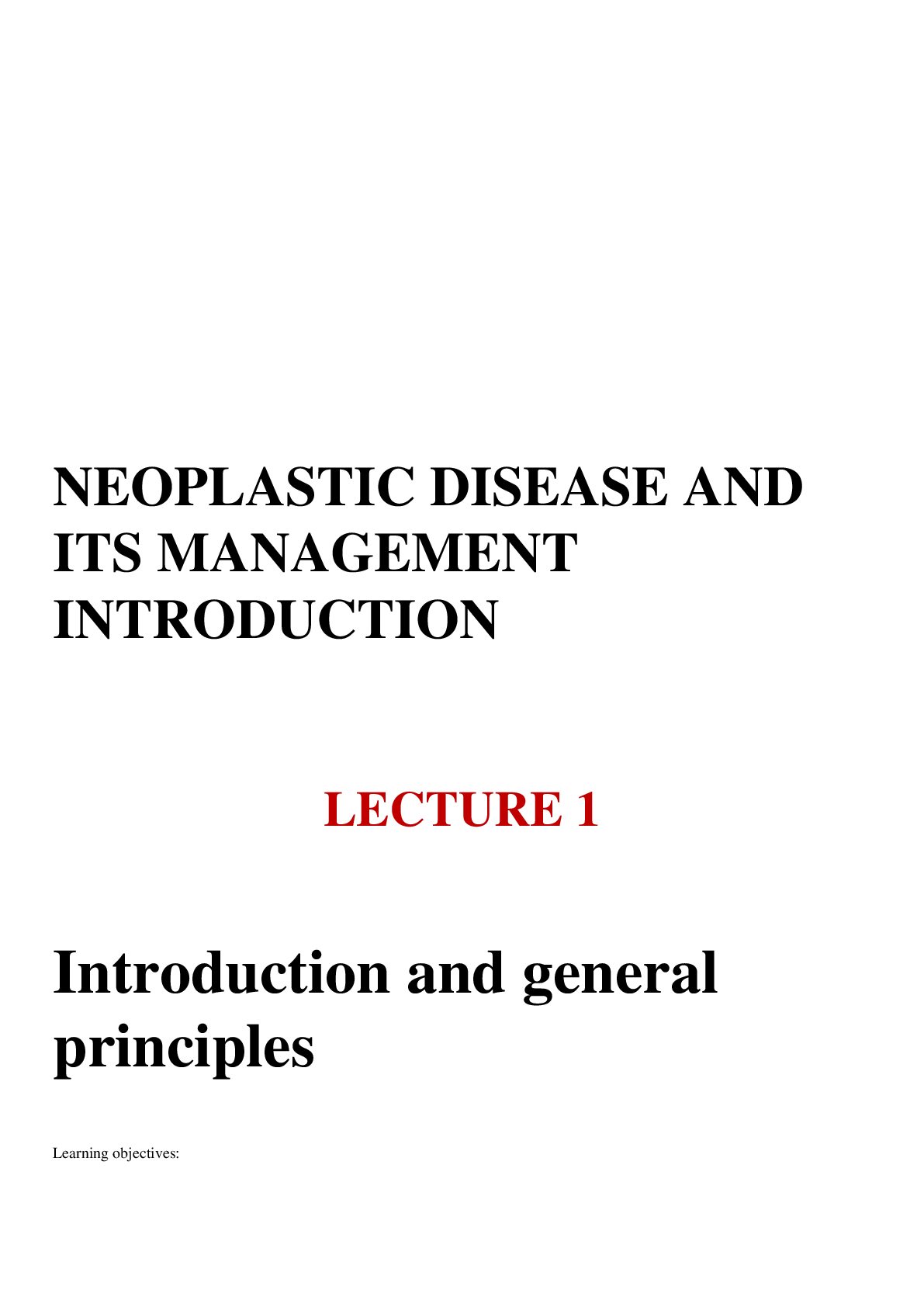

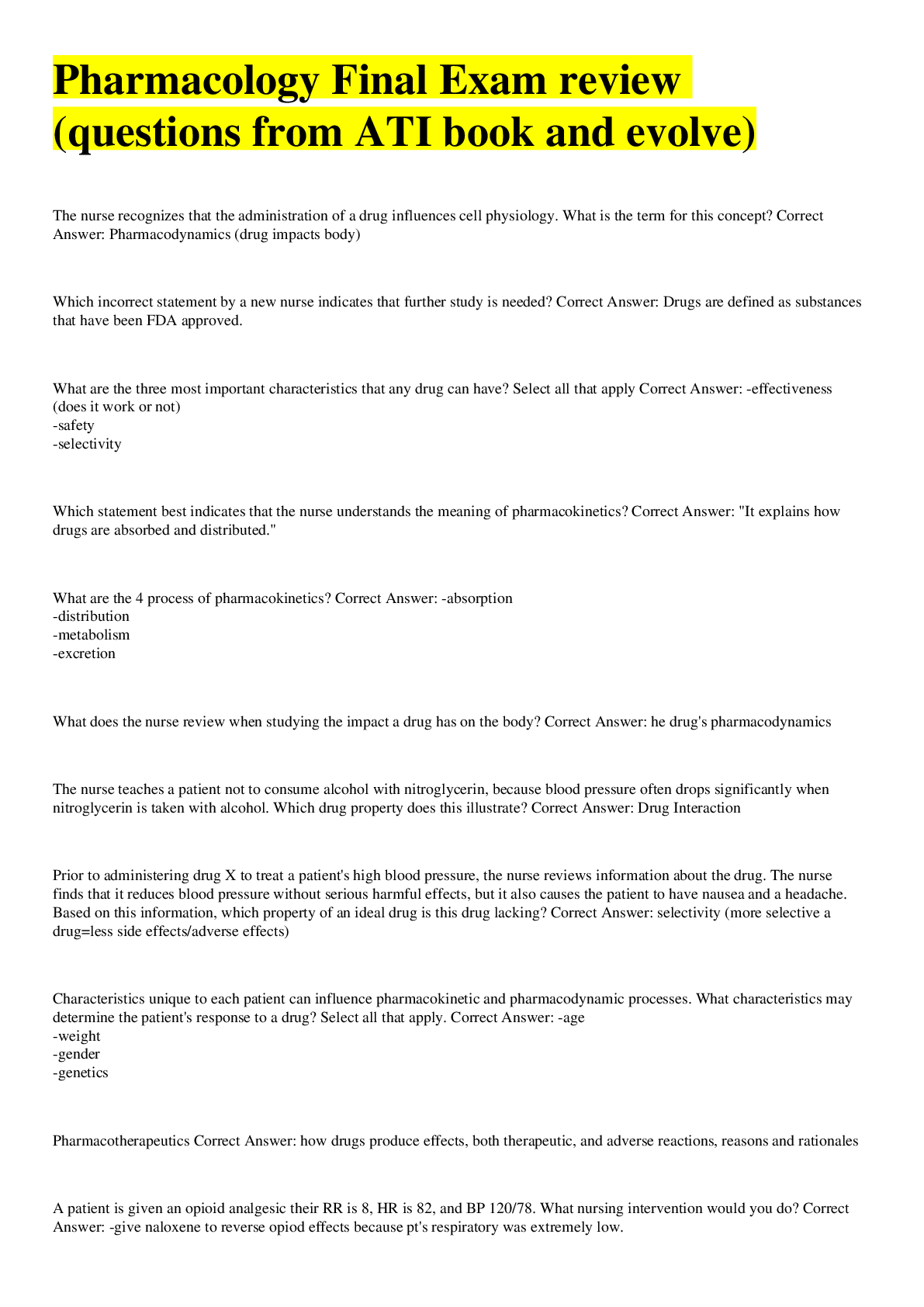
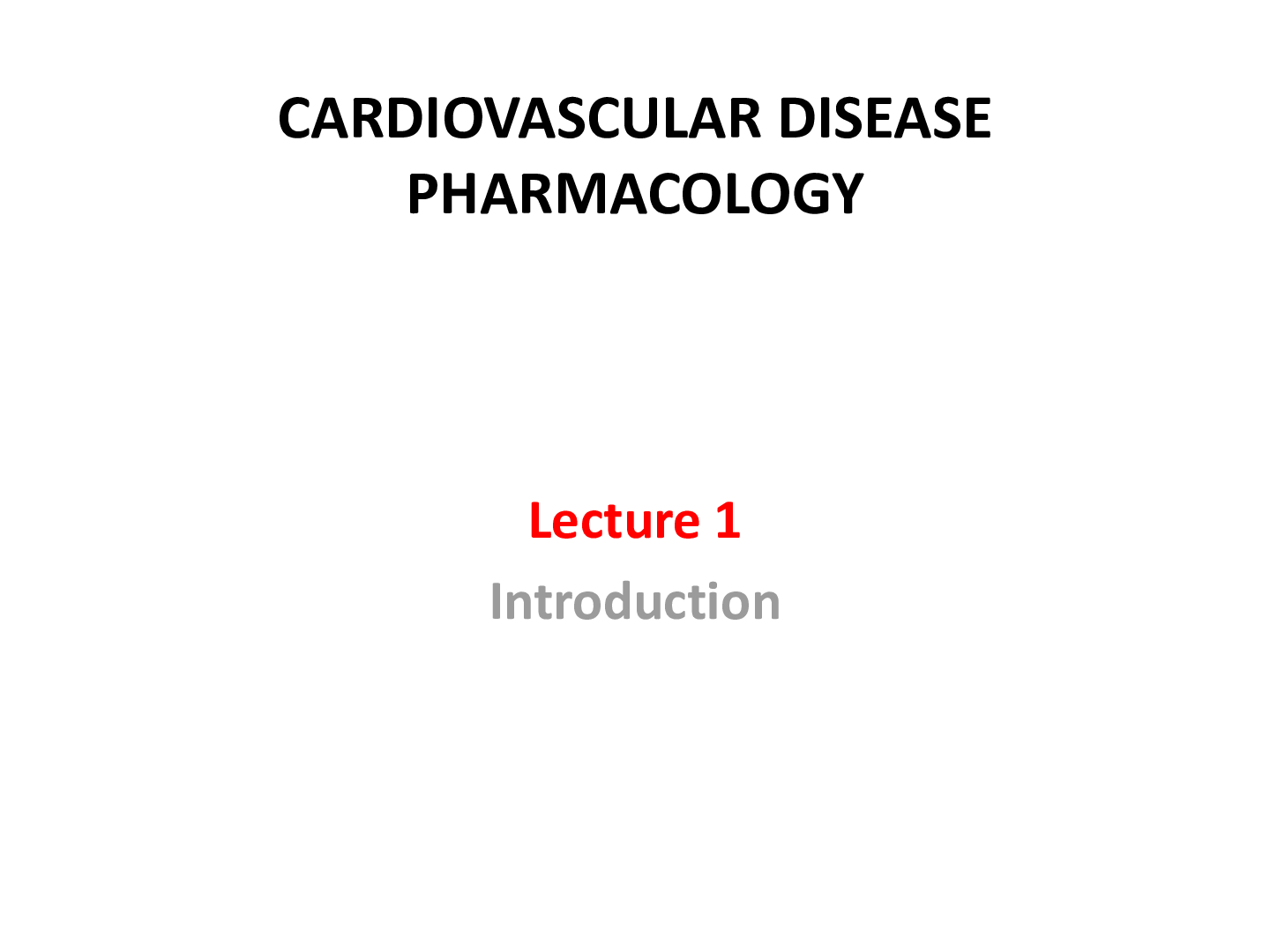
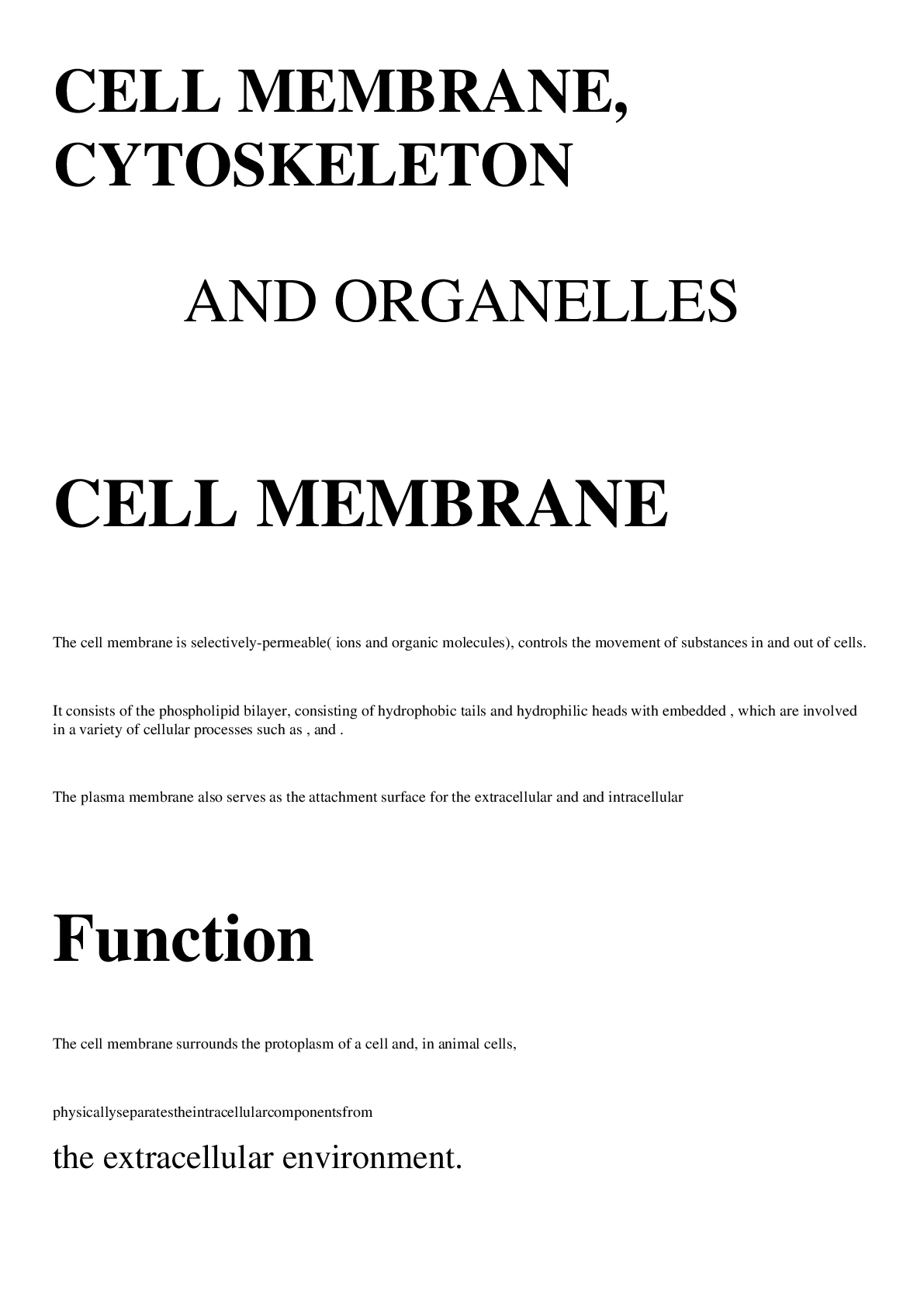
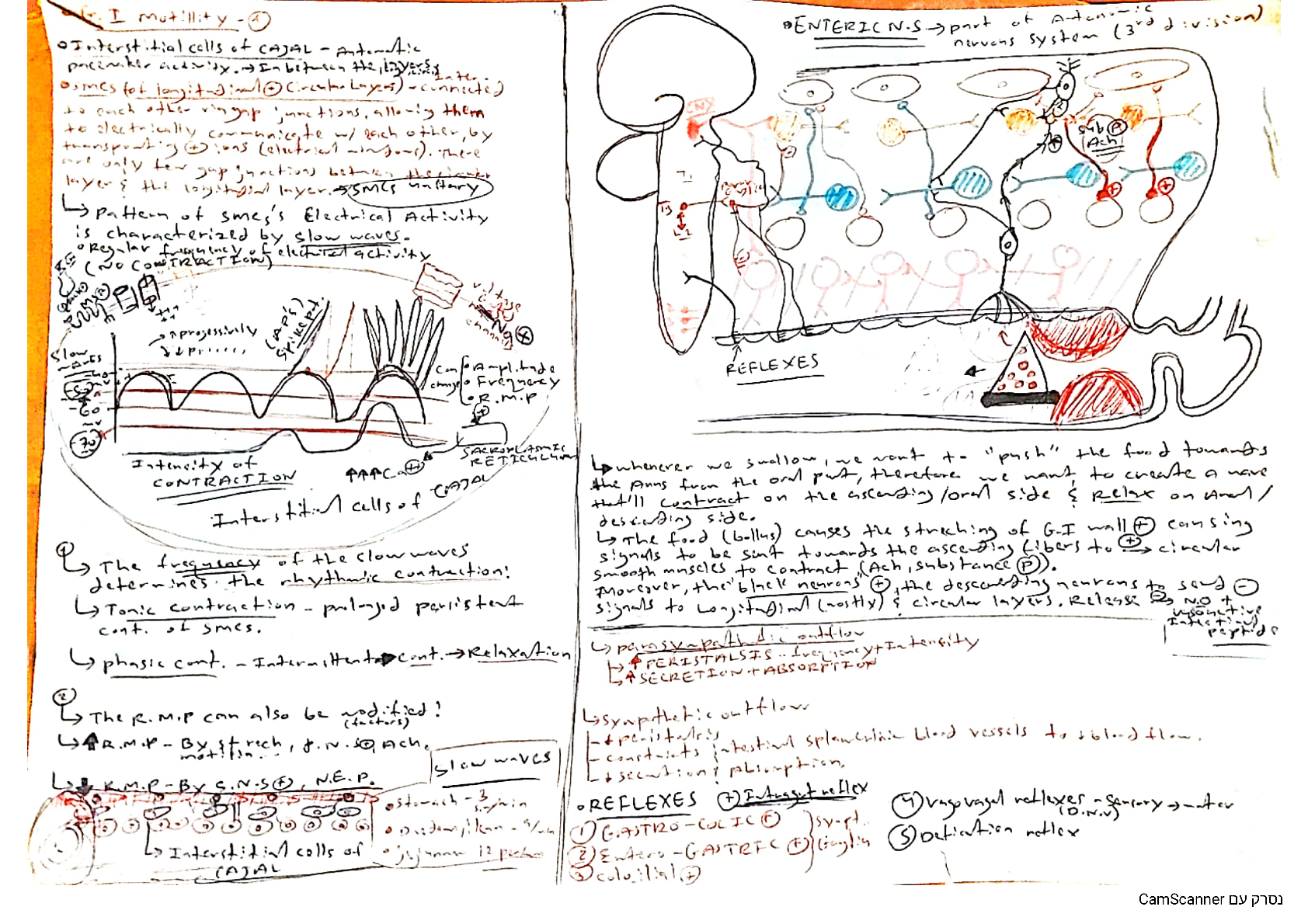
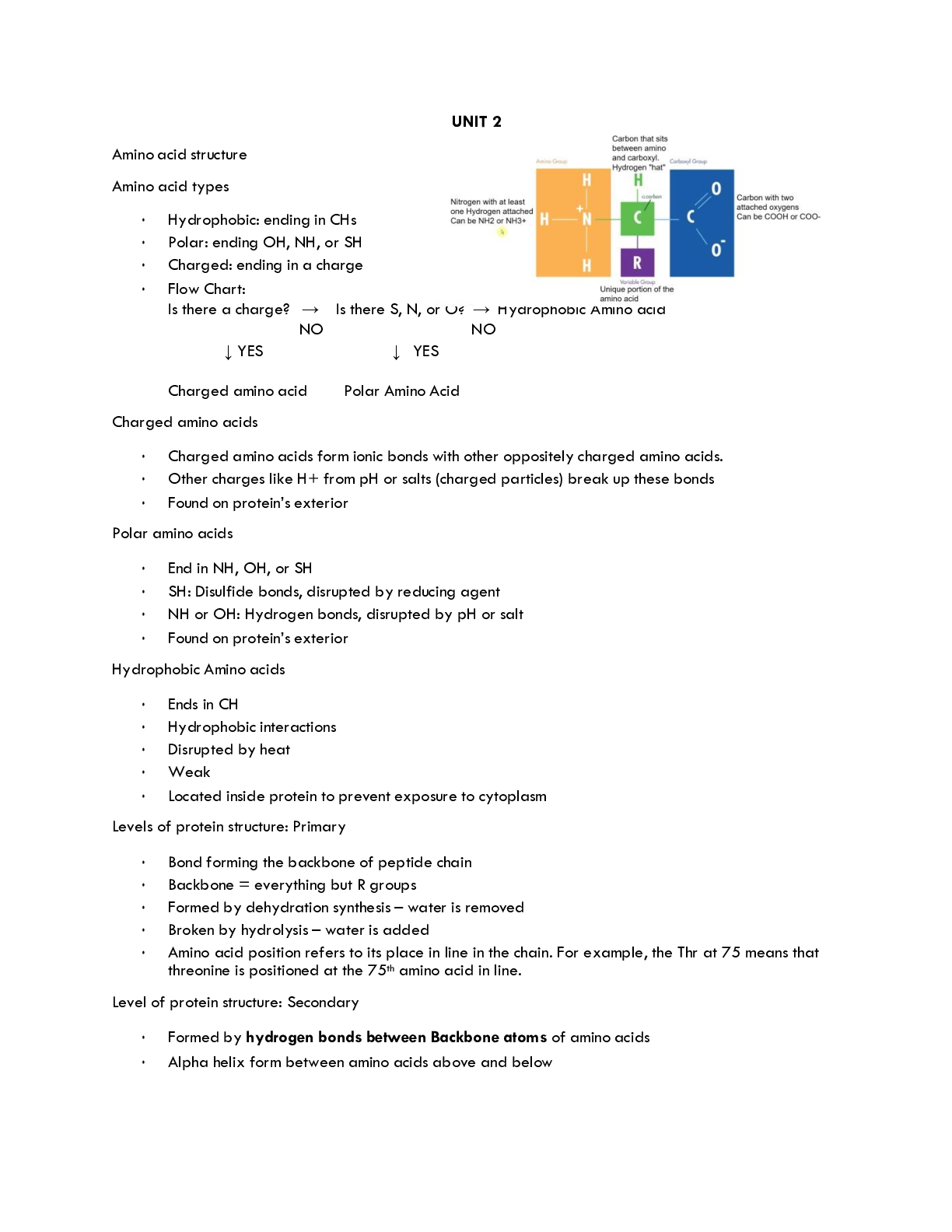





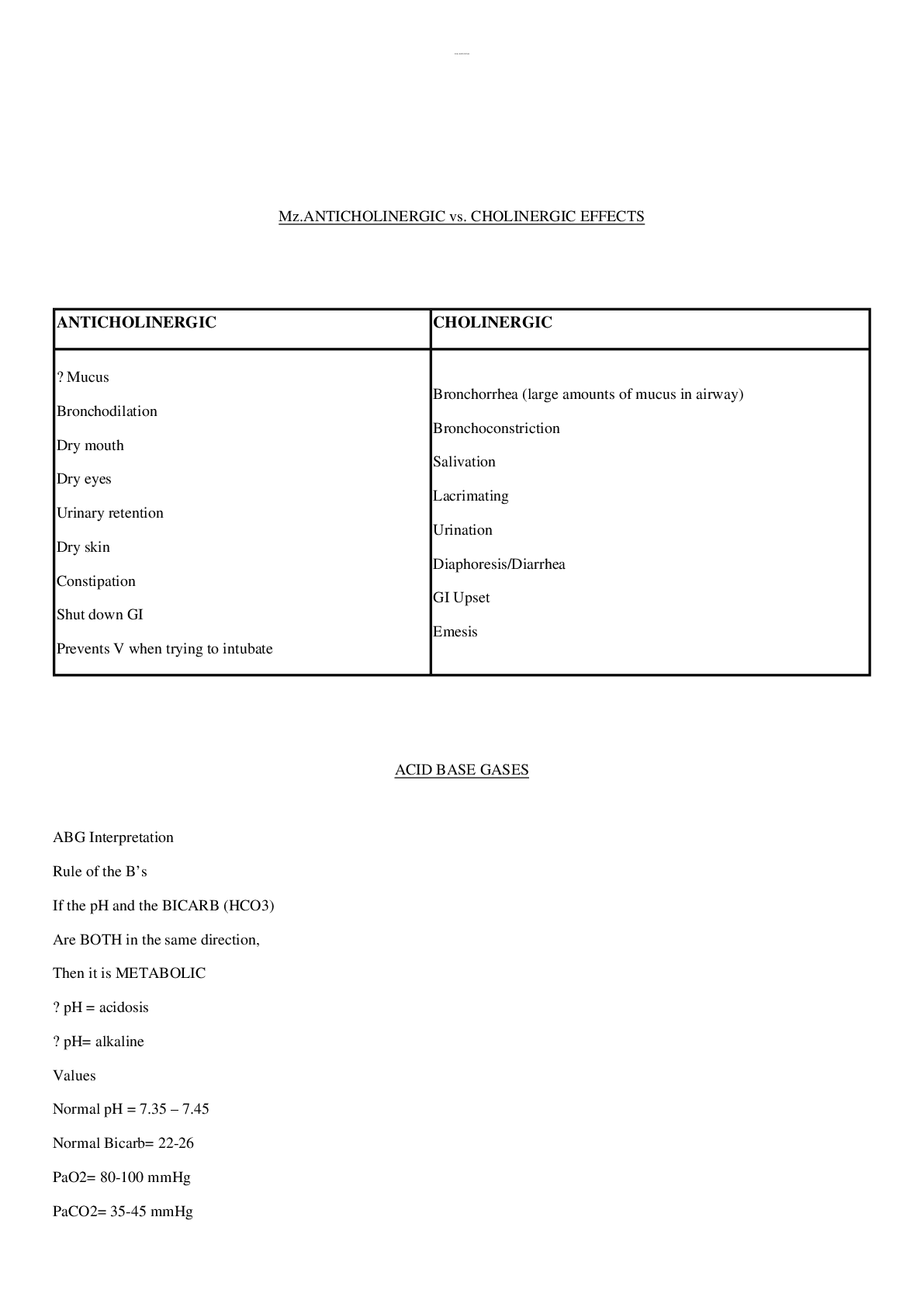
.png)

